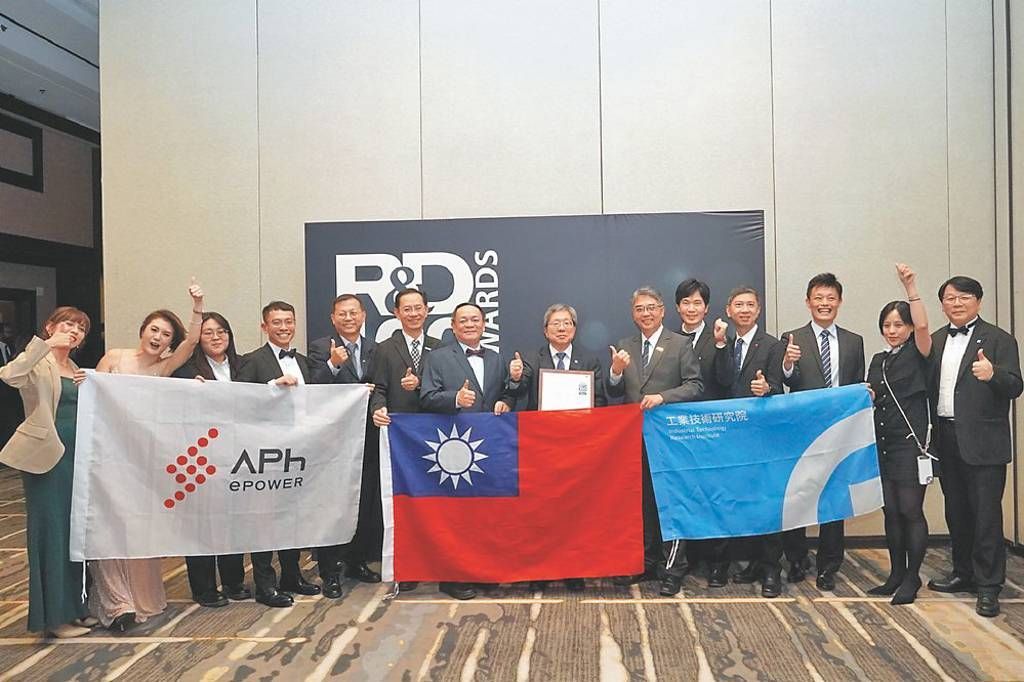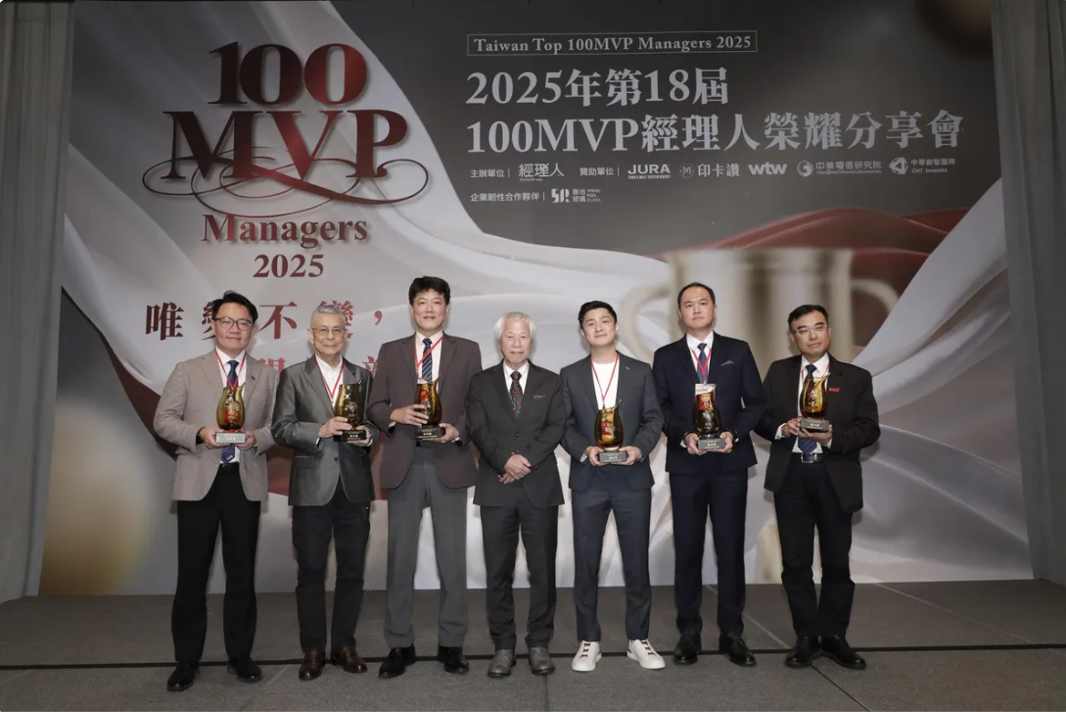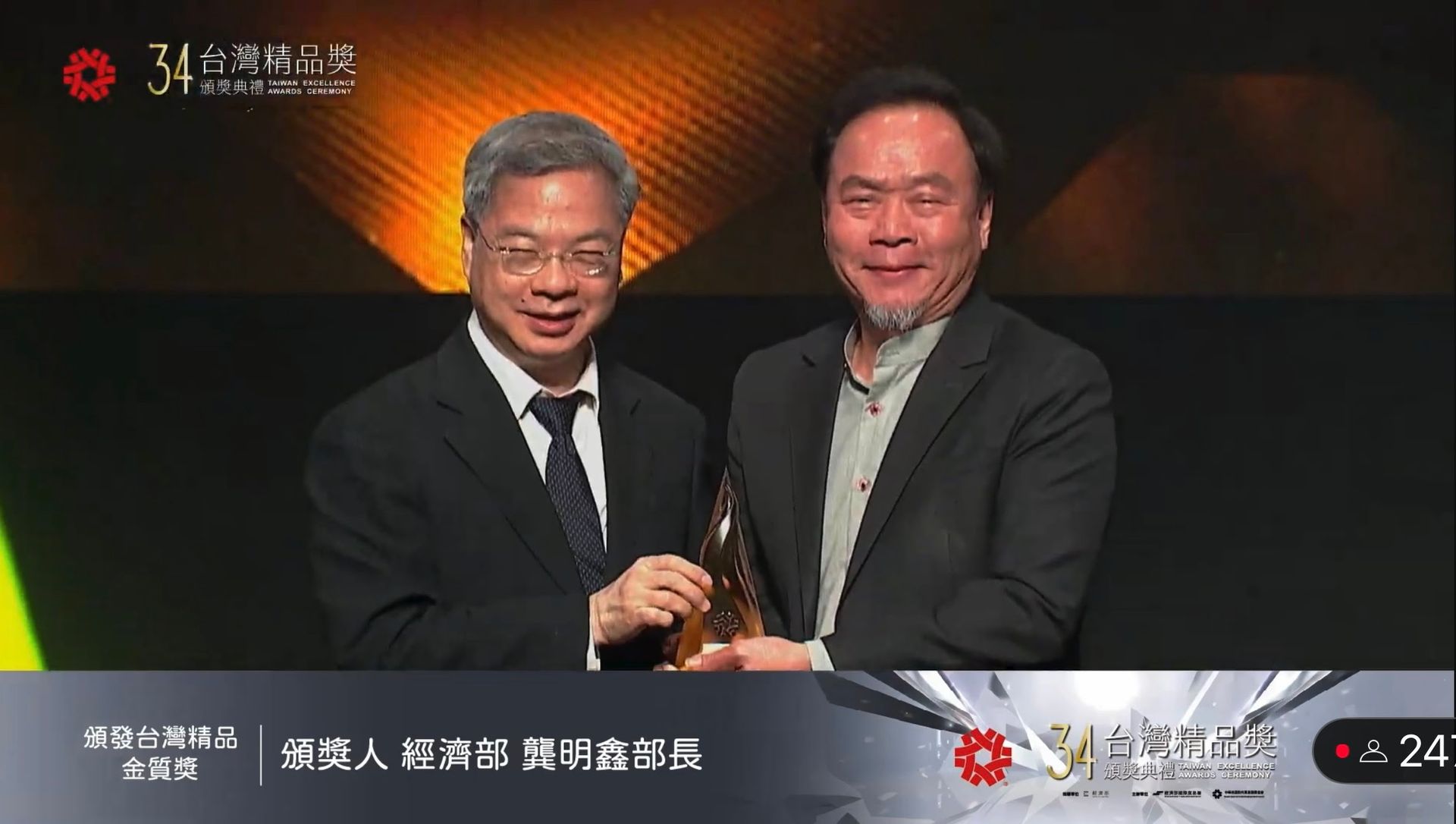TEBA
弘陽生技-30年老牌素肉廠 引領台灣植物肉新時代
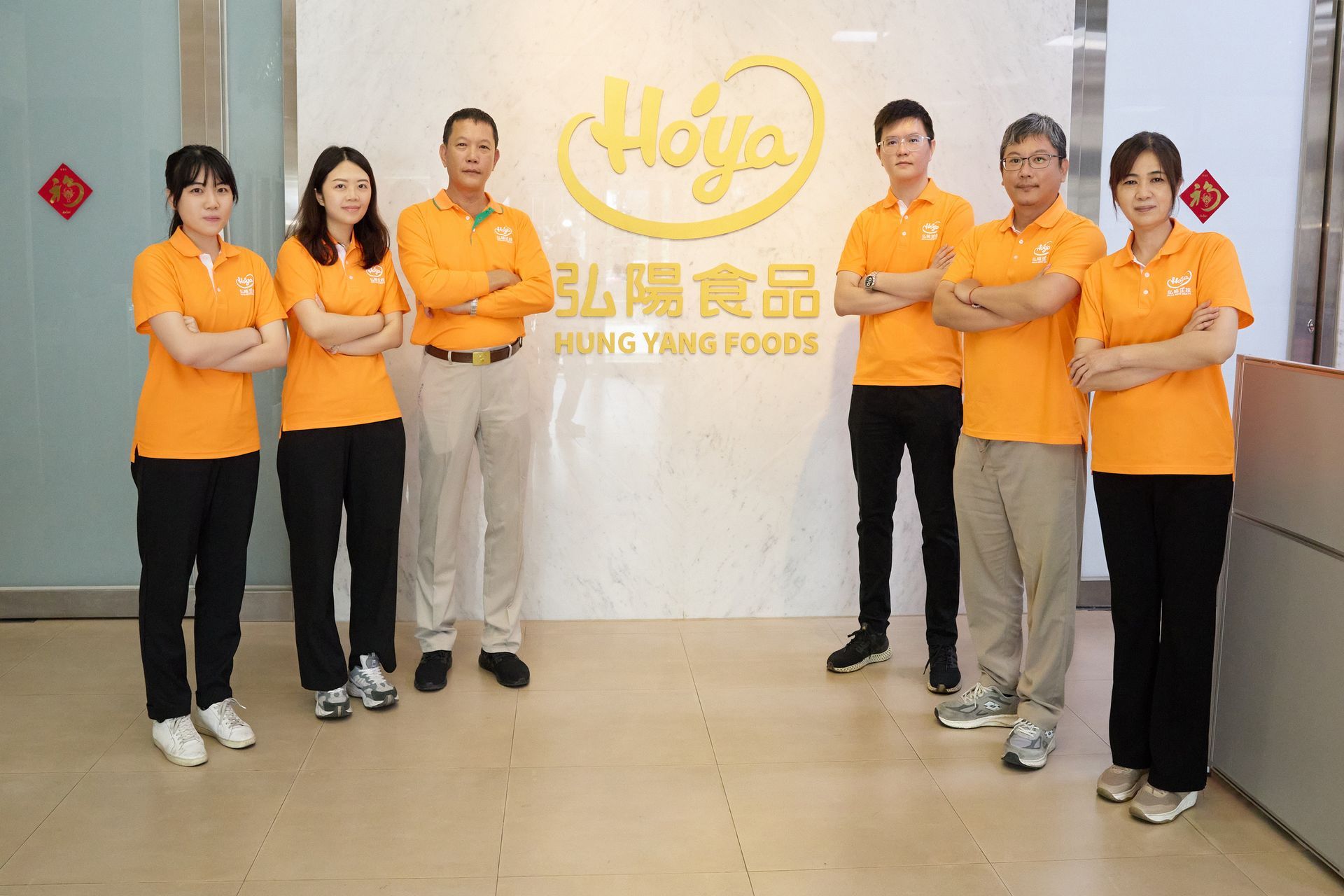
2025.08.25
弘陽生技-30年老牌素肉廠 引領台灣植物肉新時代
A 30-Year Pioneer in Plant-Based Meat: Hung Yang Foods Leading Taiwan into a New Era
一字排開的雞塊、肉乾、水餃、漢堡排,竟全是用植物性蛋白製成的料理。這是台灣最大素食食品廠—弘陽生技,以累積30年的植物蛋白技術打造的成果。代工起家的弘陽,更跨入品牌經營,在2020年推出台灣第一個植物肉品牌HOYA弘陽食品,迎戰植物肉飲食大未來。
弘陽旗下有100多種植物肉產品,不只禽畜肉,連海鮮也有,便利商店的素雞塊和韓式炸G、三角飯糰中的素鮪魚、台鐵便當的植物滷排,還有IKEA一個月熱銷5萬片的鯊魚造型植物肉排,全都出自弘陽之手。最近上市的新品滷肉飯,用植物油模擬出豬肉Q彈的肥肉口感,完全顛覆傳統植物肉的想像。
Rows of nuggets, jerky, dumplings, and burger patties—all crafted entirely from plant-based protein. This is the achievement of Hung Yang Foods, Taiwan’s largest vegetarian food manufacturer, built on 30 years of expertise in plant protein technology. Starting as an OEM provider, Hung Yang has since moved into brand building, launching Taiwan’s first plant-based meat brand, HOYA, in 2020 to meet the fast-growing demand for plant-based dining.
With over 100 types of plant-based meat products,
Hung Yang
goes far beyond poultry and livestock alternatives to include seafood. Its creations include vegetarian chicken nuggets and squid balls sold under FamilyMart’s Mama’s Cuisine, tuna used in 7-Eleven’s plant-based tuna rice balls, braised vegetarian patties in Taiwan Railway bento boxes, and IKEA’s shark-shaped vegetarian patties that sell 50,000 units monthly. A recently launched braised minced “pork” rice bowl uses plant oil to mimic the springy texture of fatty pork, completely redefining consumer expectations of plant-based meat.
從素肉到植物肉 弘陽30年磨一劍
From Vegetarian Meat to Plant-Based Meat: Hung Yang’s 30-Year Journey
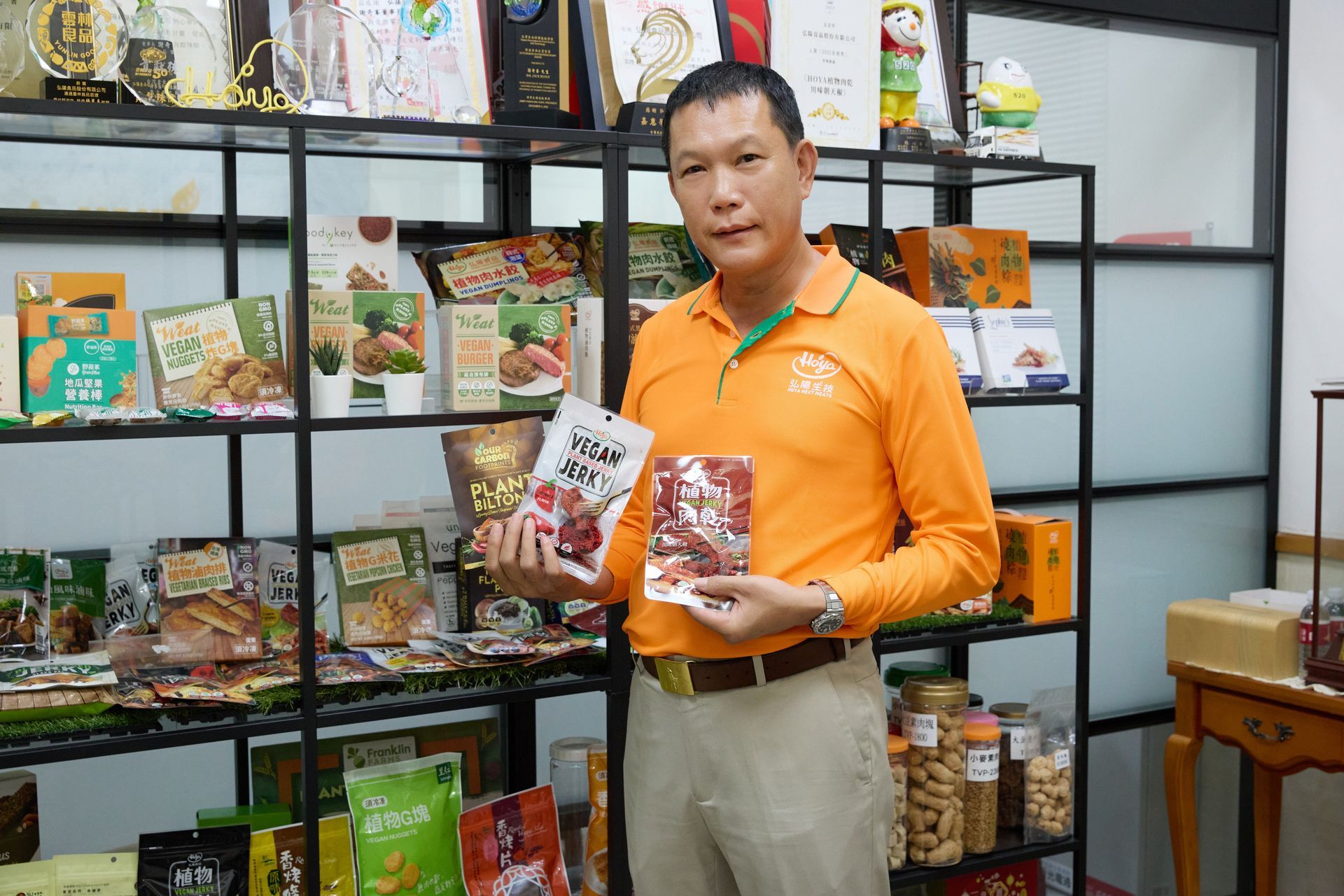
創辦人謝奇峯出身葷食世家,高中時就投入家族肉品加工,開設肉鬆、肉乾工廠。當兵時,謝奇峯常和一位「老芋仔」士官長吃飯聊天,士官長每次都會端出手炒辣麵筋,兩人一盤就能喝掉一瓶高粱。
退伍後,謝奇峯自行研發,把麵筋剝絲,配上家裡的肉乾香料一起拌炒,自創一道可口零嘴,取名「素蹄筋」,首次在食品展發表,鹹香滋味一炮而紅,至今仍是弘陽的明星商品。此後謝奇峯一頭栽進植物性蛋白的研究,更在1995年成立弘陽,轉作素肉原料和成品,也幫大廠代工,「一進去就30年!」
究竟如何讓黃豆、小麥、豌豆等植物性蛋白變成肉品?謝奇峯解釋,所有加工過程都是物理變性,全靠擠壓機擠壓,只要設定溫度、壓力等不同參數,就會產生不一樣的咀嚼口感,也是素肉吃起來像不像葷肉的關鍵。
Founder Hsieh Chi-Feng, who grew up in a family business specializing in meat processing, started out running a factory for meat floss and jerky. While serving in the military, he often dined with a senior officer who made spicy gluten, and the two could easily finish a bottle of Kaoliang liquor with it. Inspired, Hsieh developed his own snack after discharge—shredded gluten stir-fried with his family’s jerky spices—which he named Vegetarian Tendon. The savory and chewy snack debuted at a food expo and quickly became a hit, remaining one of Hung Yang’s signature products today.
Since then, Hsieh devoted himself to plant protein research, establishing Hung Yang Foods in 1995 to produce vegetarian meat ingredients and finished products, as well as OEM services. “I dove in, and it’s already been 30 years!” he recalls.
How do soybeans, wheat, and peas transform into meat-like products? Hsieh explains that the process relies on physical modification using extrusion technology. By adjusting parameters like temperature and pressure, manufacturers can precisely control the chewing texture—the key to making vegetarian meat taste convincingly like real meat.
精準模擬肉品口感 5%營收投入研發
Perfecting Meat Textures with R&D: 5% of Revenue Reinvested
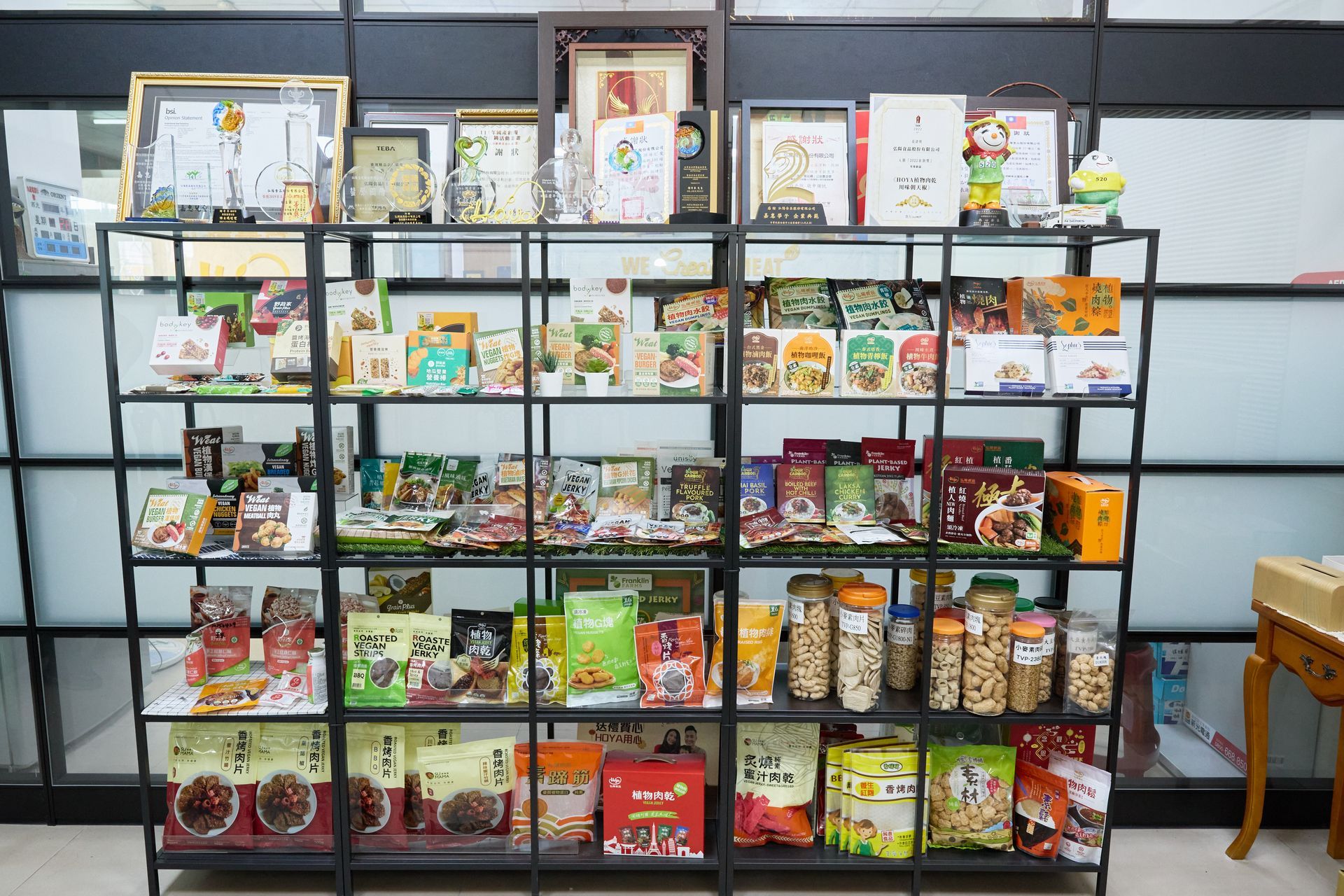
「早期弘陽就是拉絲蛋白的代名詞!」針對各種產品找出最精確的參數,模擬不同肉食特色,這中間的know how,就是弘陽的研發實力,也是一直以來在素肉市場屹立不搖的原因。謝奇峯表示,弘陽每年撥出營收5%用在研發,公司有專門的研發團隊,其中不乏食品背景的碩博士,研發新品速度以「月」計,每月都會端出創意,不斷汰弱留強。
除了靠累積多年的根基贏得客戶,謝奇峯也勤跑各國食品展,從台北、德國、馬來西亞、新加坡、美國、法國、荷蘭、東京,「全世界的食品展,都有我的足跡!」目前弘陽產品銷售至2、30個國家,每年營收60%來自外銷。
“Back then, Hung Yang was synonymous with textured vegetable protein!” By identifying exact processing parameters for each product, the company can replicate the characteristics of different types of meat. This technical know-how is the foundation of Hung Yang’s long-standing success in the vegetarian meat market.
Each year, Hung Yang reinvests 5% of its revenue into R&D. Its dedicated team, which includes food science PhDs and master’s graduates, develops new products at a monthly pace—constantly innovating and refining offerings.
Beyond R&D, Hsieh has tirelessly promoted Hung Yang at international food expos across Taipei, Germany, Malaysia, Singapore, the U.S., France, the Netherlands, and Tokyo. Today, Hung Yang exports to 20–30 countries, with 60% of annual revenue coming from overseas markets.
抓住植物肉商機 走上品牌之路
Seizing the Plant-Based Opportunity: Building a Brand
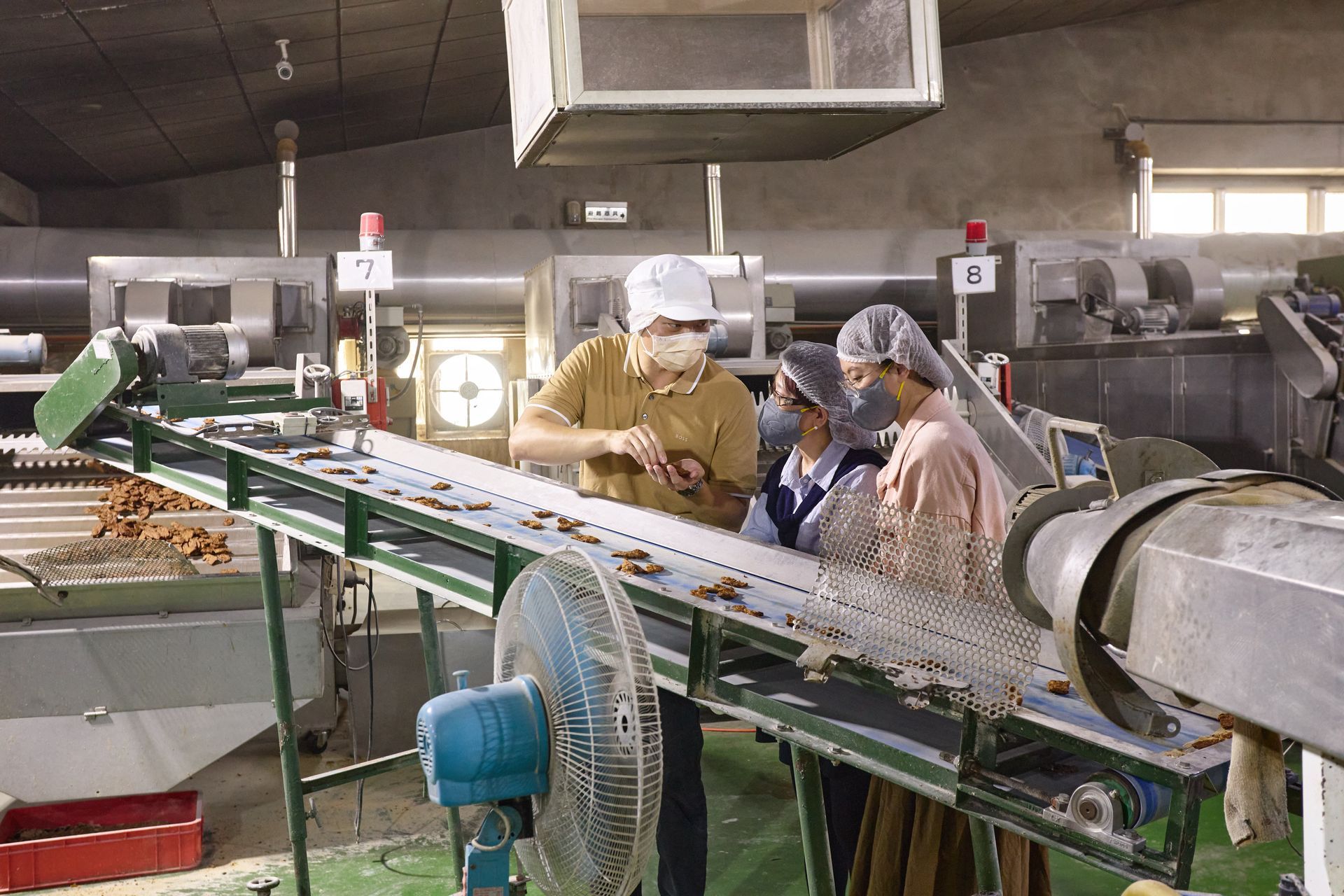
這幾年植物基(Plant-based)市場出現天翻地覆的變化。美國植物肉品牌Beyond Meat橫空出世,不僅在2019年上市,還吸引比爾蓋茲和影帝李奧納多等大咖投資,全球掀起一陣植物肉熱潮。謝奇峯還記得,16年前他參加的德國科隆國際食品展,現場超過8000個廠家,只有弘陽一家做植物肉;到2023年,竟有近百家植物肉廠商參展。
Beyond Meat的成功,讓謝奇峯尋思:形象時尚的植物肉與台灣傳統素肉有什麼不同?他分析,過去素食消費者大多是宗教吃素人口,但隨著健康飲食與環保永續浪潮興起,大家開始有意識的選擇素食;除了由葷轉素,也出現一群彈性素食族群,雖非純素者但偶而吃素,「用植物肉3個字推廣,增加日常飲食中蛋白質的新選擇。」
累積30年功力的弘陽,推出台灣第一個植物肉品牌HOYA(弘陽),專注在植物肉乾、植物肉調理食品等一系列常溫和冷凍產品,豐富弘陽自有品牌下的商品線,未來也不排除增加便當或鮮食產線,更加貼近消費者的需求與便利。
謝奇峯坦言,推品牌也是為了公司永續經營,過去賣原料,容易陷入價格戰不利公司長久發展,唯有走品牌才能和對手拉開差距,建立競爭優勢。
The plant-based food market has undergone a dramatic shift in recent years. With the rise of U.S. brand Beyond Meat, which went public in 2019 and attracted investments from Bill Gates and Leonardo DiCaprio, plant-based meat has become a global phenomenon.
Hsieh recalls that 16 years ago, at the Anuga Food Fair in Cologne, Germany, Hung Yang was the only plant-based meat exhibitor among 50,000 companies. By 2023, there were 100 such exhibitors.
The success of Beyond Meat made him reflect: what makes fashionable “plant-based meat” different from Taiwan’s traditional vegetarian products? Historically, most vegetarian consumers in Taiwan were motivated by religious reasons. But as health consciousness and sustainability trends rise, more people—including “flexitarians” who occasionally eat vegetarian meals—are embracing plant-based foods. “Just by calling it plant-based meat, consumers feel differently about it,” Hsieh explains.
In 2020, Hung Yang, in partnership with distributor Tri-Sun Teho, launched VVeat, Taiwan’s first plant-based meat brand, starting with burger patties. Alongside its existing brand Hoya, which focuses on plant-based jerky, dumplings, and other shelf-stable and frozen products, the company has built a complete brand portfolio.
For Hsieh, brand building is also about long-term sustainability. Selling raw materials often leads to price wars that undermine growth, but a strong brand differentiates the company and secures competitive advantage.
指標通路加持 搶占市場先機
Winning Market Share Through Leading Retail Channels
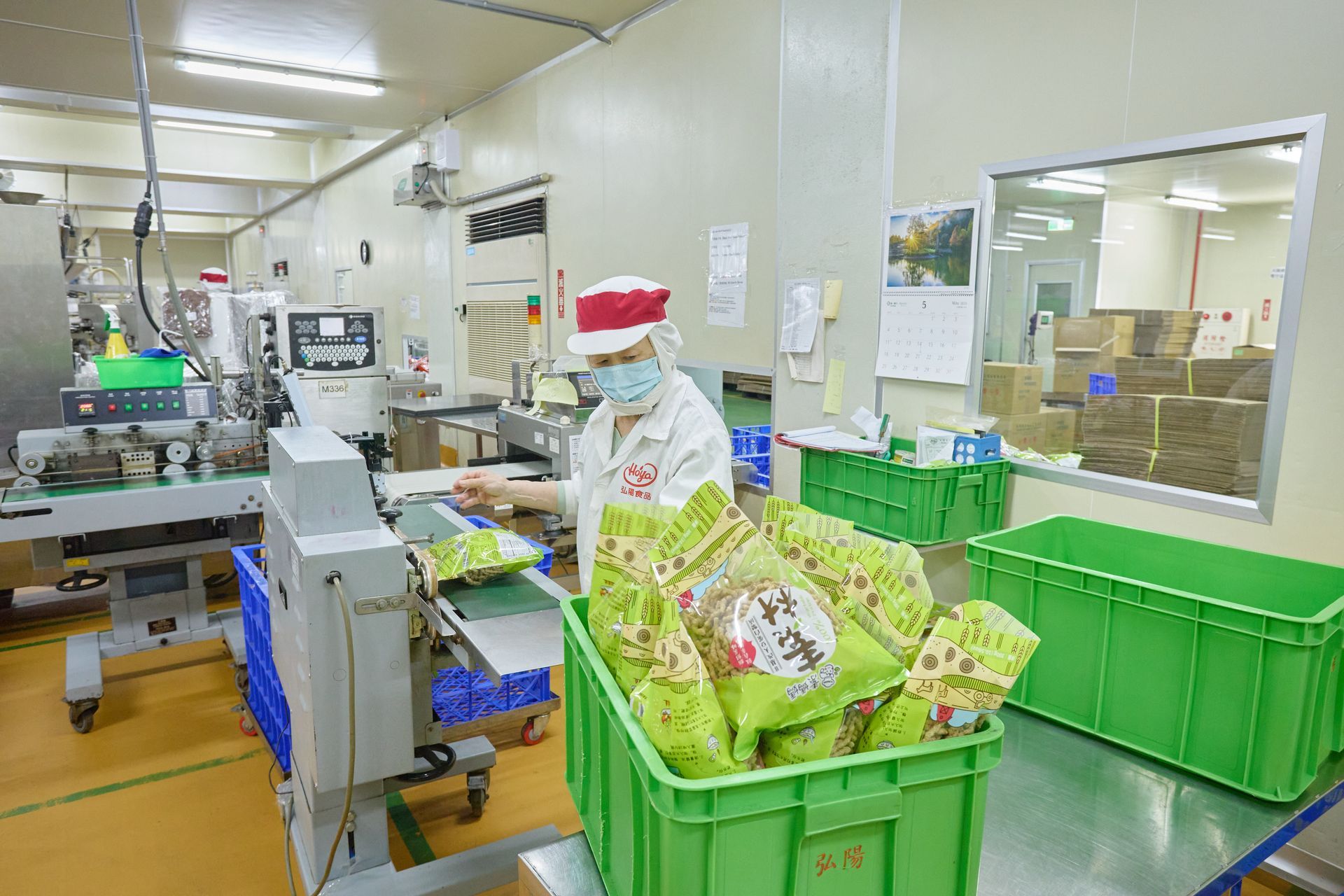
有了品牌後,弘陽打入台灣眾多指標性通路,包括里仁、好市多、家樂福、全聯、全家便利商店、7-11等,以此拉抬品牌形象和知名度。謝奇峯舉例,就像里仁在台灣人心中代表健康、安全,如果品牌可以進駐里仁,也代表產品通過驗證,對品牌來說更加分。
謝奇峯認為,弘陽最大的品牌優勢,就是「時機」,「品牌就是早跟晚的差別,弘陽是台灣第一家,沒有競爭對手,但現在新品牌出來,馬上就要面對我們。」目前弘陽每年營收70%都來自自有品牌,每年成長的5-10%,也是自有品牌貢獻。
With its brands,
Hung Yang has successfully entered Taiwan’s key retail channels, including Leezen, Costco, Carrefour, PX Mart, FamilyMart, and 7-Eleven, boosting both its image and recognition. Hsieh notes, “For example, Leezen represents health and safety in the minds of Taiwanese consumers. Getting our products onto their shelves means our brand has earned a powerful endorsement.”
Timing, Hsieh says, is
Hung Yang’s greatest advantage: “In branding, timing makes all the difference. We were Taiwan’s first, so we had no competition. But now, as new brands emerge, they have to compete with us.” Currently, 70% of
Hung Yang’s revenue comes from its own brands, with 5–10% annual growth driven primarily by branded sales.
率先喊出低碳肉 打造品牌差異
Pioneering Low-Carbon Meat: Creating Brand Differentiation
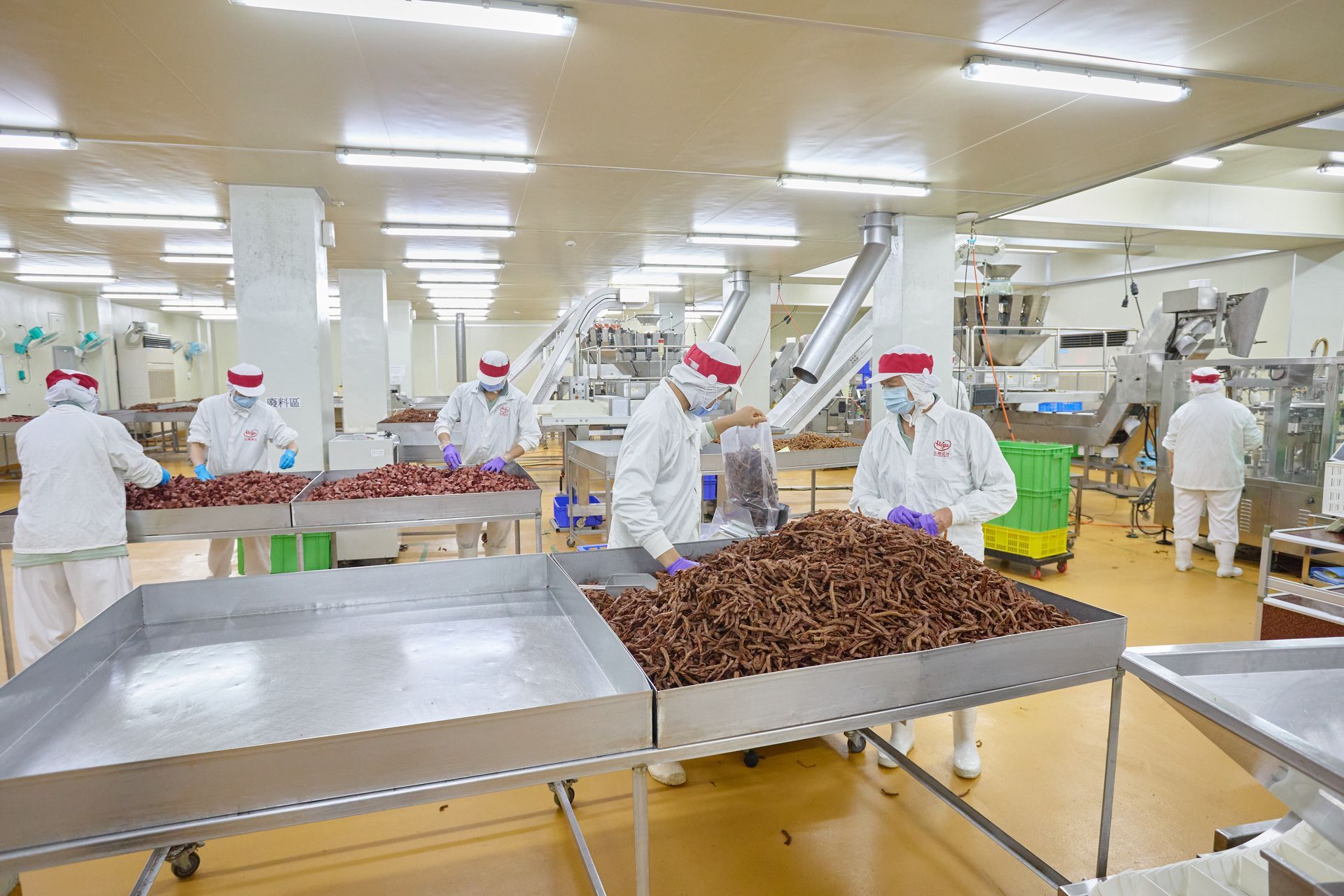
現在謝奇峯更著手布局未來的低碳品牌大計。生產一公斤牛肉有60公斤碳排,一公斤植物肉卻只有2.75公斤碳排,他深刻感受,弘陽這幾年的成長,幾乎來自葷食人口,他們大多是為了地球減碳議題而選擇吃素,「這一代人把地球資源用完了,下一代就沒得用。」這和他的想法一致,面對減碳,「早晚都要做的事,為什麼不早點做?」
植物肉本就低碳,他的目標是2030年達到零碳,從全綠電著手,弘陽已在工廠自建太陽能,也正尋覓合適風電,再搭配購買綠憑證;加上使用在地契作的台中1號黃豆做原料,減少原料取得端的碳排放,甚至考慮在國外設廠,降低運送碳足跡,未來品牌就會變成「Zero Carbon」,「我要把品牌形象建立在低碳上。」事實上,弘陽今年已經以「Our Carbon Footprints」名牌,進軍歐洲市場,打入英國內的大型連鎖賣場。
謝奇峯表示,他從Beyond Meat學到品牌包裝的重要性,用低碳打造品牌差異,從台灣第一個植物肉,變成台灣第一個低碳肉,「感謝Beyond Meat給我這個發想,他把素肉變植物肉,現在我把植物肉變低碳肉,相信我是台灣第一個喊的人。」
謝奇峯透露,達成這一連串低碳布局後,弘陽也將啟動IPO計畫,「我要讓全世界都吃到我的肉!」謝奇峯帶領30年老牌素肉廠華麗變身,未來更將以低碳肉的形象走入大眾視野,再度引領風潮。
Looking ahead, Hsieh is focusing on a low-carbon brand strategy. Producing one kilogram of beef emits 60 kilograms of carbon, while one kilogram of plant-based meat emits just 2.75 kilograms. He has observed that much of Hung Yang’s growth comes from meat-eating consumers motivated by climate concerns. “This generation has consumed the planet’s resources; the next won’t have any left. Carbon reduction is inevitable—why not start earlier?”
Plant-based meat is inherently low-carbon, but Hsieh’s goal is to reach net-zero emissions by 2030. To achieve this, Hung Yang has installed solar panels at its factories, is exploring wind power options, and purchases renewable energy certificates. It also sources locally grown Taichung No. 1 soybeans to reduce import reliance and is considering overseas production to cut transportation footprints. In Europe, Hung Yang has already launched the Our Carbon brand, securing placement in Tesco, the UK’s largest supermarket chain.
Hsieh says he learned the importance of brand packaging from Beyond Meat. By positioning Hung Yang around low-carbon values, he aims to transition from “Taiwan’s first plant-based meat” to “Taiwan’s first low-carbon meat.” “I should thank Beyond Meat for the inspiration. They turned vegetarian meat into plant-based meat; now I’m turning plant-based meat into low-carbon meat. I believe I’m the first in Taiwan to make that call.”
Once this low-carbon strategy is in place,
Hung Yang also plans to pursue an IPO. “I want the whole world to taste my meat!” Hsieh declares. From a 30-year-old vegetarian meat manufacturer to a reinvented leader in sustainable protein,
Hung Yang Foods is poised to lead once again—this time with a bold low-carbon vision.
撰文:TEBA 台灣精品品牌協會
Written by TEBA(Taiwan Excellent Brand Association)
contact TEBA for more Taiwan brands: jennylo@teba.org.tw

